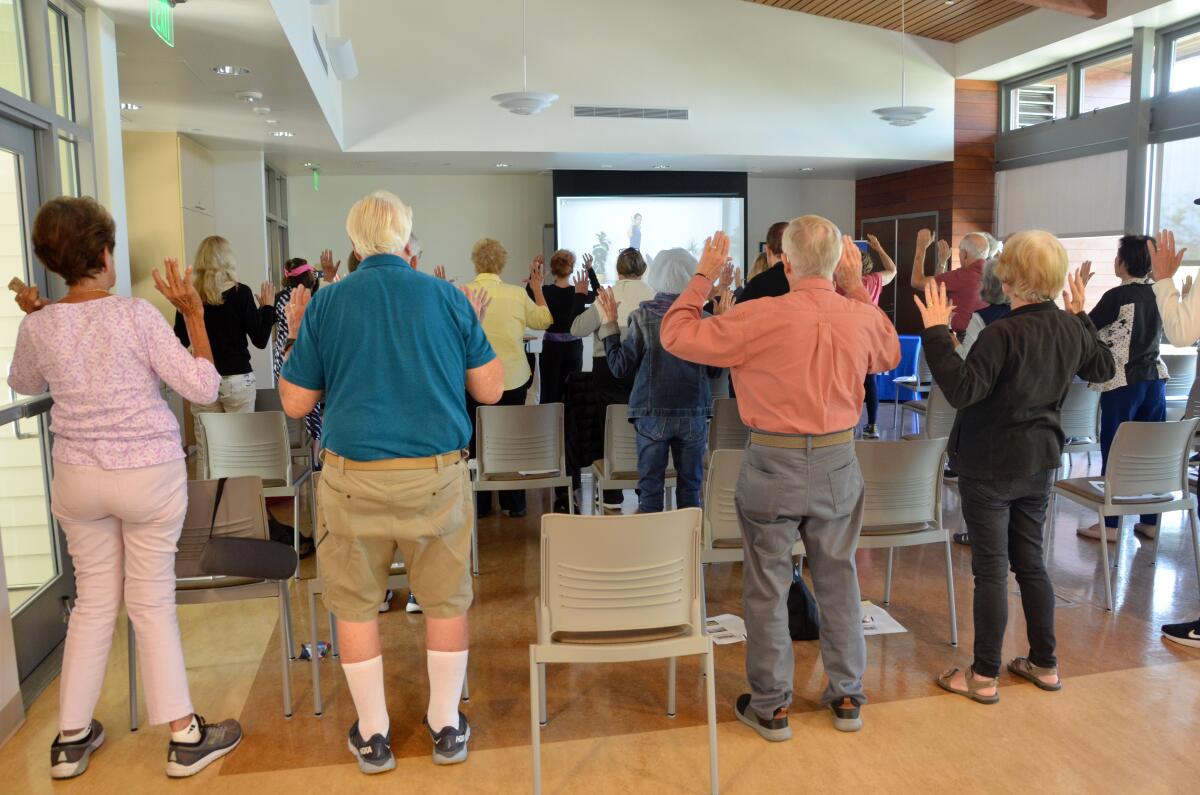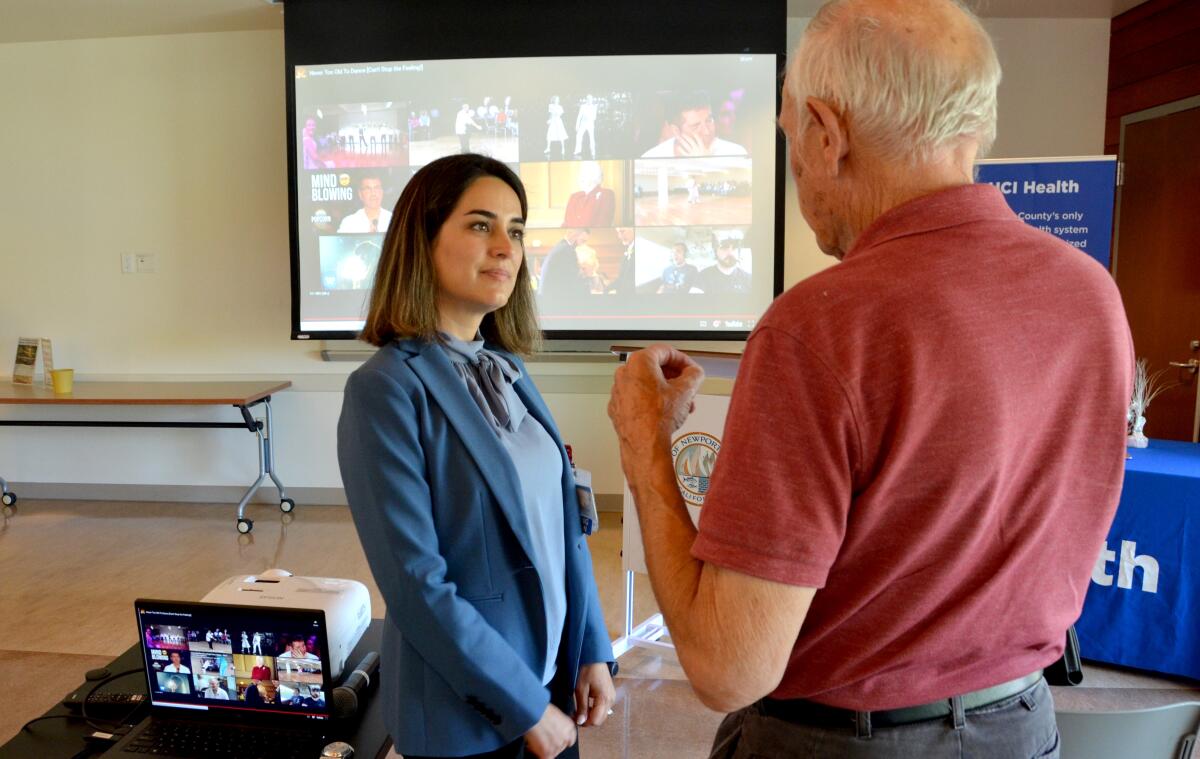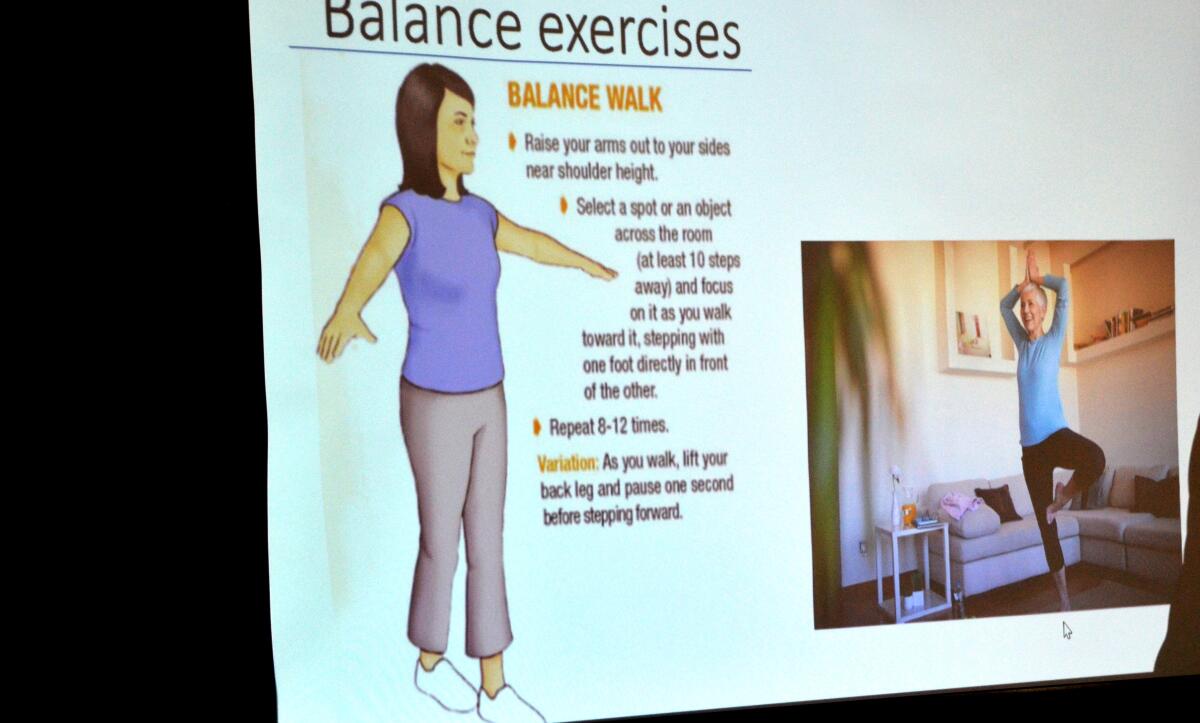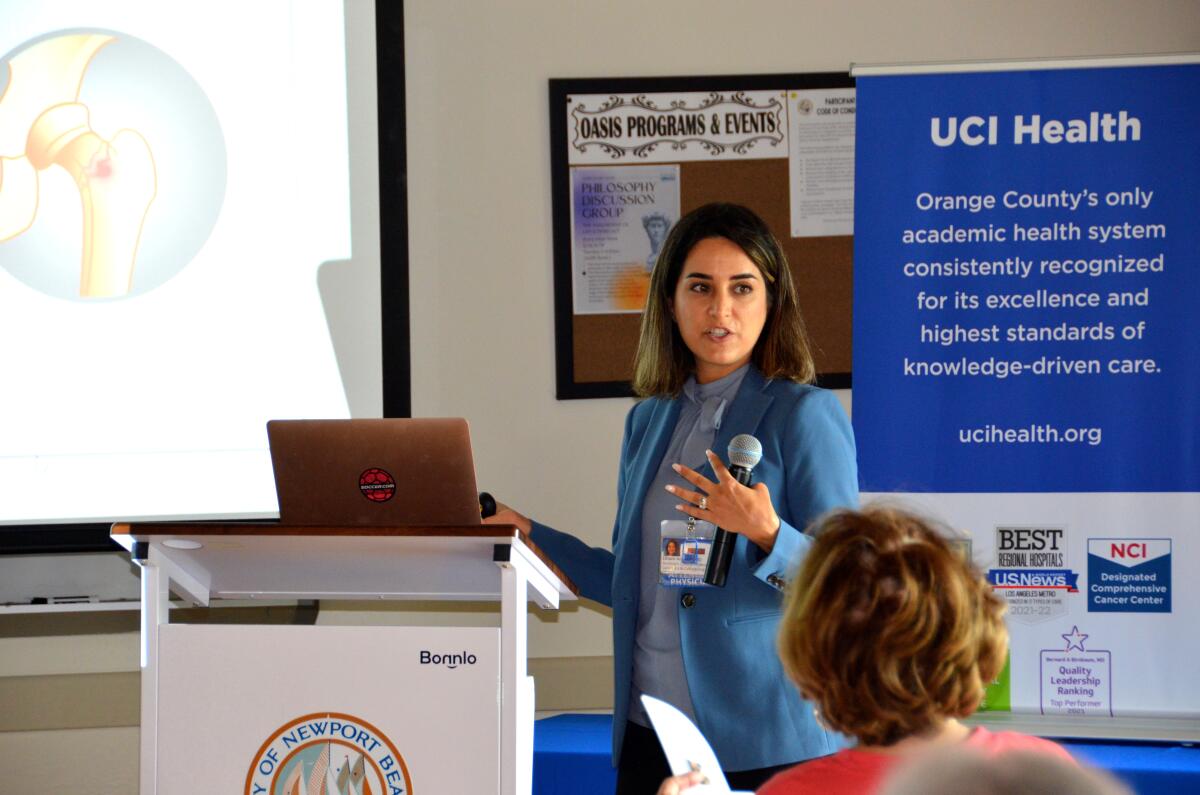Fear of falling one of many reasons seniors tumble, UCI doctor says at OASIS lecture

- Share via
UCI Health family medicine practitioner Elham Arghami, M.D., asked a room full of seniors in Corona del Mar how many of them had taken a spill. How many had a fear of falling? How many believed falls were a normal part of aging?
By the show of hands after each question, it became clear Arghami had her work cut out for her during her interactive lecture on balance issues and fall prevention earlier this month at the OASIS Senior Center.
Arghami, the assistant clinical professor of family and geriatric medicine at the UCI School of Medicine, then asked the audience to share their experiences.
An 86-year-old man said that he falls about once a month. He described one instance when he was distracted while in conversation with someone while walking and tripped over a fire hydrant.
He described another incident that occurred as he was walking from a dimly lit parking garage into bright sunshine and toppled over a concrete berm inside the parking lot.
“I trip and fall,” he said. “Fortunately I [sometimes] catch myself.”

A woman in the audience shared that she was walking down a friend’s driveway and simply fell. She suffered no injuries but admitted that she has a fear of falling.
Another woman said that a couple of months earlier she had been carrying some flowers and didn’t see some small stairs in her path. She fell and broke her ribs and was still in pain on the day of the lecture.
Arghami assured the audience that while gray hair, thinning skin and wrinkles may be an inevitable part of growing older, “falling is not part of aging.”
She noted that fall-related problems increase alongside changes that occur during the aging process but said most falls can be prevented.
Among age-related changes are sensory and cognitive deficits and slower response time, she explained. Health issues such as chronic conditions (diabetes, Parkinson’s), gait and balance problems, muscle weakness, poor vision and fear of falling are all are risk factors for falls.

Another risk factor for potential falls is environmental hazards such as stairs without handrails, dim lighting, obstacles and tripping hazards, she said.
According to Arghami, one in four seniors falls every year, and if a person has fallen once there is a 50% chance they will fall again. Every 20 minutes someone can die from an injury sustained in a fall, she noted.
“COVID was more serious for elderly,“ said Arghami. “The pandemic changed their lifestyle. They were no longer going to public places or riding mass transit. Now they were mostly sitting all day and using more electronic communications.”
As a result, she explained, they became challenged both mentally and physically, affecting their mobility.
“Although they did a great job reducing transmission [of the coronavirus], the isolation of being homebound, prolonged sitting, being less active leads to weak core muscles and lower circulation,” said Arghami. “With 12% decreased physical activity, 10% less steps, 34% less sleeping, 41% anxiety, 33% depression, the result is a 20% increase in falls.”
One of the key risk factors for falls is actually the fear of falling, she explained. The perception one is in poor health leads to overall poor quality of life, as a person may become less independent by withdrawing socially and stopping activities. The latter causes reduced strength, poor balance and increased disability, resulting in increased fall risk.
Prescription and over-the-counter medications can play a role in increasing risk of falls, as can alcohol consumption, the doctor explained.
“The older you get, the longer alcohol stays in the system,” said Arghami.
According to the National Institute On Aging, older people can feel “high” without increasing the amount of alcohol they drink. Also, older women are more sensitive to alcohol than men.
As for fall prevention, “Exercise is most important to keep muscles strong and working on balance to reduce fall injuries,” said Dr. Arghami. “It will provide a better mood, prevent anxiety, depression, and you can socialize when you exercise in group activities.”

She provided a demonstration to show that anyone can work on muscle strength and balance to improve mobility by doing simple exercises in the home like bridge, wall squats and presses. She then had attendees participate in doing chair leg raises and squats by gripping the back of their chair for support.
According to to the medical alert company Lifeline, the Chinese martial art tai chi offers many physical and mental advantages to seniors. The result is improved balance, flexibility and stability along with improved core strength, cognitive functions, memory, reduction of depression, anxiety and the emotional and mental health conditions.
Emory University School of Medicine showed that tai chi classes help reduce falls risk by almost 50%. Tai chi is gentle on the joints and won’t increase pain or cause the person to be short of breath.
One of the attendees at the OASIS lecture, Ellie Shobe Swan, said she found it to be excellent and informative. ”I’ve fallen three times and didn’t even know I was gonna fall,” she said.
All the latest on Orange County from Orange County.
Get our free TimesOC newsletter.
You may occasionally receive promotional content from the Daily Pilot.






